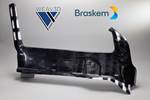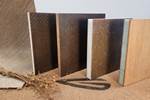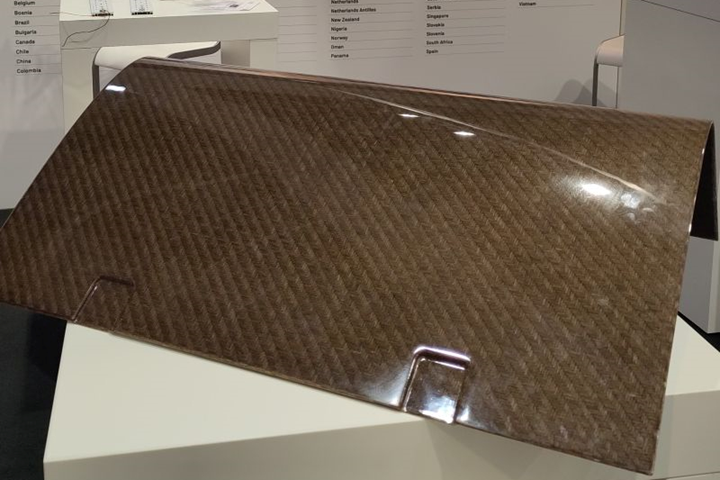Bcomp ampliTex fabric is incorporated into bus A/C panels
Proof of concept project leads to the manufacture of more environmentally responsible natural fiber-based bus panels by automotive supplier Eberspächer.
Tier 1 automotive supplier Eberspächer (Esslingen, Germany) has developed bus A/C covers using sustainable lightweighting company Bcomp’s (Fribourg, Switzerland) natural fiber composites. Eberspächer’s choice is described as a bold push toward the use of more sustainable materials in mass transport applications, and closely follows Bcomp’s successful entry into large-scale production of automotive interior parts.
The collaboration was initiated by an Eberspächer student proof of concept project from the Technical School for Wood Technology (Stuttgart, Germany). The challenge was to find an environmentally responsible alternative to glass fiber-reinforced plastic (GFRP) for A/C covers used on buses. Flax-based natural fibers emerged as the preferred material.
Eberspächer manufactured prototype panels using Bcomp’s ampliTex technical fabric, intending to gauge interest among OEMs. The composite panels use a vinyl ester resin infusion with an in-mold transparent gelcoat finish, leaving the ampliTex’s flax-based weave visible. The natural fiber materials used to produce the prototypes will be the same that go into the production covers for interested Eberspächer customers.
Accordingly, some of the panels will be installed in buses operating in diverse but extreme environmental conditions, including winter and summer months. Successful performance evaluations will pave the way for series approval and full-scale manufacturing, says Eberspächer.
AmpliTex is a proprietary technical fabric made from European-grown flax plants, that is frequently used as a sustainable alternative to carbon fiber and fiberglass. It has been well-proven in body panels for demanding motorsport applications and is quickly finding its way into mass-produced road cars — it has already found a place as an optional interior material on the Volvo EX30. Depending on the application, this material solution can achieve similar or better stiffness and weight compared to carbon or glass fiber while reducing CO2 emissions. Applications out of automotive far include luxury chairs.
“Mass transport applications like this innovative bus A/C cover reinforce our technologies’ potential to replace conventional materials at scale. It also signals our continued growth and expansion into critical markets,” Paolo Dassi, marine and industry manager at Bcomp, says. “As industries increasingly seek out sustainable materials, we are ready to meet the demand with our flax-based composites that offer lightweighting performance without environmental compromise.”
Related Content
-
Robotized system makes overmolding mobile, flexible
Anybrid’s ROBIN demonstrates inline/offline functionalization of profiles, 3D-printed panels and bio-based materials for more efficient, sustainable composite parts.
-
Bcomp ampliTex makes appearance in Cupra EV Cup Bucket seats
The entire Cupra Born VZ line-up features all-natural fiber front seats that highlight functionality, aesthetics and reduced CO2 emissions.
-
Flax composites enter serial automotive production via Volvo EX30
The small SUV, which focuses on sustainability and is designed to have the lowest carbon footprint of any model in Volvo Cars’ history, incorporates Bcomp ampliTex fibers in its dashboard and door trim.

















